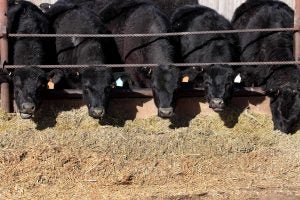The U.S. Department of Agriculture announced a proposed rule entitled Fair and Competitive Livestock and Poultry Markets, which it says will provide clarity for courts nationwide regarding the onerous “proof of harm to competition” standard if finalized.
This standard imposed by some courts requires individual farmers and ranchers to prove that an anti-competitive practice that harmed them also harmed the entire industry in order to hold meat packers accountable for violating the Packers and Stockyards Act. If finalized, this new rule aims to ensure fair treatment for independent cattle producers who have been affected by practices of meatpacking corporations.

The announcement has come with mixed responses from stakeholders
“The USDA’s announcement is a significant victory for independent farmers and ranchers,” said Liza Cuthbert-Millet, a rancher in Weston County, Wyoming, and a board member of Powder River Basin Resource Council. “These rules will level the playing field and ensure that hardworking producers have a fair shot at justice when they’ve been wronged.”
The WORC argues that the new rules aim to address a longstanding challenge for independent ranchers. Under previous regulations, farmers and ranchers had to demonstrate that any violation of the Packers and Stockyards Act by meatpacking corporations caused “market-wide harm to competition.”
This requirement made it difficult for individual ranchers to hold these companies accountable for specific actions. The new rules are intended to remove this barrier, potentially making it easier for independent ranchers to seek justice.
“No one wants to go to court. But when farmers and ranchers are wronged, they deserve a justice system that doesn’t require them to jump through impossible hoops to be heard,” added Corey Hart, a rancher in Well County, North Dakota, and member of Dakota Resource Council. “These rules will provide the necessary clarity and support to ensure that our producers are treated fairly and that anti-competitive behavior is stamped out before it can cause further harm.”
Meanwhile, those opposed to the updates say reversing the legal standard will encourage lawsuits.
“Unfortunately for the Biden Administration, Secretary Vilsack has tried these changes before,” said Julie Anna Potts, President and CEO of the Meat Institute. “They have failed before the courts, conflict with Congressional intent, and are a blatant attempt to pick winners and losers in the marketplace. Under these proposed rules, everyone loses: the livestock producer, the packer, and ultimately the consumer.”

“What is the Biden Administration trying to fix?” said Potts, who explains that government interference is coming at a time when fed cattle prices were at record levels for most of 2023, surpassing the 2014-2015 previous record highs, and now, well into 2024, cattle prices remain at record levels.
And the cattle price outlook for 2024 continues to be bullish, with USDA projecting the annual average price of cattle to increase over the 2023 record based on a smaller cattle supply.
The Meat Institute argues that these changes would introduce uncertainty into the market and de-couple the demand signals producers receive from beef consumers, including consumers’ willingness to pay for value-added attributes.
At low points in the cattle cycle, like this year’s historically small cattle herd, it puts at risk the value producers earn from sustained beef demand, and as the expansion phase of the cattle cycle begins, it would undermine the benefits earned from growing beef demand.
“In response to consumer demands for value-added meat products like ‘no antibiotics ever,’ ‘grass-fed,’ or even someday ‘carbon neutral,’” said Potts, “AMAs have rewarded livestock producers for investing in these attributes while ensuring meat packers can make the high-quality products consumers want to feed their families.”
In addition, the Meat Institute believes the proposed change violates the “major questions doctrine,” as articulated in the Supreme Court’s ruling in West Virginia vs. Environmental Protection Agency, because the U.S. Department of Agriculture is acting without the permission of Congress and proposing administrative rules that will have a dramatic effect on all stakeholders in the meat and poultry markets
“The President and his Administration continue to pursue policies that will increase costs for consumers. From Secretary Vilsack’s proposed changes to the Packers and Stockyards Act’s rules to USDA’s delayed modernization of pork inspection to EPA’s proposed wastewater guidelines, these policies will prove costly to the 98 percent of American households who purchase meat to feed their families,” says Potts.


